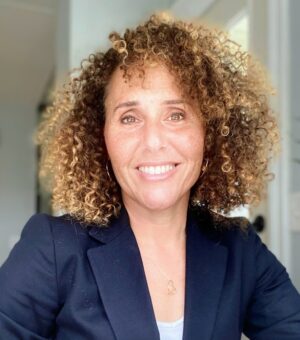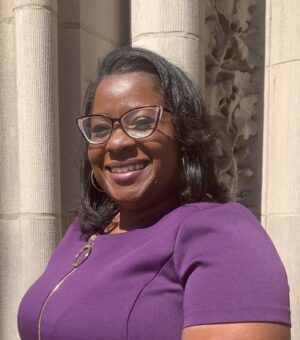
Supporting Children of Incarcerated Parents: Reimagining School and Community Collaboration
A positive school experience, where a child feels secure, is essential for their well-being. However, for many children with incarcerated parents—one in 14 in the U.S.—school can feel far from safe due to stigma, trauma, and a lack of understanding. Schools have both the potential and responsibility to be more supportive environments.
Our recent webinar highlighted how, through collaboration with mental health professionals, corrections, and community organizations, schools can become more responsive to the needs of children impacted by parental incarceration and create environments where they feel supported. This article shares key insights from the webinar, titled “Supporting Children of Incarcerated Parents: School and School-Based Mental Health Collaboration,” hosted with support from the U.S Department of Justice’s Office of Juvenile Justice and Delinquency Prevention.
Starting the Conversation Within Schools
Schools don’t always address the complex trauma that children with an incarcerated parent face. Dr. Whitney Hollins, an associate professor at the CUNY School of Professional Studies’ Youth Studies Program, shared her personal experiences. She noted that in her own schooling, issues like bullying were discussed, but the topic of incarceration was never addressed. This silence can leave children feeling even more isolated. Dr. Hollins emphasized the importance of storytelling and representation.
- Action Step for Schools: Teachers should engage in open conversations about incarceration, using the See Us, Support Us (SUSU) Educator Toolkit. Representation in classroom materials is key. For example, having books in classroom libraries featuring characters who are incarcerated can help children feel seen and understood. This kind of representation can create a space where students feel more comfortable sharing their experiences. Children often need to know it’s okay to discuss their experiences before they feel ready to share. Building trust and creating space for these conversations are essential steps to supporting students with incarcerated parents.
Community Connection: Building Champions Across Sectors
Supporting children of incarcerated parents requires partnerships across various agencies and fields. John Eshun, a mental well-being planner for the Minnesota Department of Health’s Child and Family Health Division, emphasized the need to build a proactive, cross-sector network of champions—people in corrections, public health, and education who can collaborate to address the needs of children with incarcerated parents. These champions can use local and statewide data to inform decision-making and fuel conversations that create change.
- Takeaway for Communities: School nurses, as John suggested, can be an important entry point for identifying and supporting children with incarcerated parents. However, forming strong, proactive relationships with willing partners beyond individual schools and across systems (corrections, public health, mental health) is crucial to offering well-rounded support.
Using Data to Drive Change
Data is a powerful tool in this effort. John Eshun spoke about the importance of using both statewide and local data to identify the number of children with incarcerated parents, understand their unique challenges, and mobilize efforts. Sharing this data with key stakeholders can start important conversations, helping to build awareness and leading to action.
- Resource Highlight: By collecting data on children of incarcerated parents, like the Minnesota Student Survey (MSS), educators and community leaders can gain a deeper understanding of the needs in their area and create targeted interventions that truly make a difference.
Mental Health: A Lifeline for Children in Crisis
In many cases, schools aren’t just under-equipped—they’re overwhelmed. This makes the role of school-based mental health services critical in addressing the emotional toll parental incarceration takes on children. The webinar emphasized the need for schools to collaborate closely with mental health professionals and community organizations to offer more robust support systems.
- Resource Highlight: Dr. Hollins shared insights from her work on trauma and resilience in children of incarcerated parents, including the curriculum she co-authored, Joining Forces, which helps children navigate the emotional impacts of mass incarceration. Its goals are to support youth in healing and thriving while empowering them to challenge the carceral system using literacy and arts-based strategies.
Real Questions, Real Solutions
The webinar also gave space for participants to ask pressing questions about how to better support children of incarcerated parents:
- “How can we create spaces where children feel safe to talk about their experiences?”
Begin creating trauma-informed and healing-centered environments that prioritize emotional safety and trust. This involves not only training but also implementing school-wide practices that encourage open communication, respect, and support for all students. Consider establishing peer support groups, such as those offered by the U.S. Dream Academy’s Dream CommUnity program, which provides a virtual option accessible to youth across the country. This can help foster a sense of community and reduce isolation among children, particularly for those who may not have local support programs available.
- “Are there resources for parents wanting to build support systems for children with incarcerated parents?”
Yes! Resources like POPS Clubs and The Youth Action Council (YAC) offer a roadmap for parents and caregivers looking to start or enhance local support programs.
Creating a Path Forward
Schools have the potential to be powerful spaces of healing and support for children of incarcerated parents. With the right resources, training, and partnerships, they can play a transformative role in the lives of these children—offering safety, understanding, and empowerment. By fostering collaboration across sectors like mental health, education, and corrections, we can reimagine schools as places where every child feels valued and supported. Together, we can ensure children of incarcerated parents are given the tools and opportunities they need to build bright, resilient futures.
Let’s work together to make schools places where all children, regardless of their circumstances, can feel safe to learn, grow, and heal.
Helpful Links and Resources
If you’re looking for ways to help children of incarcerated parents, whether in schools or communities, explore these additional resources shared during the webinar:
- WE GOT US NOW, a national organization for supporting children of incarcerated parents
- StoryChain Program: Learn how volunteers help incarcerated parents stay connected with their children through recorded storytelling.
This project was supported by Grant No. 15PJDP-23-GK-02655-COIP awarded by the Office of Juvenile Justice and Delinquency Prevention. The Office of Juvenile Justice and Delinquency Prevention is a component of the Department of Justice’s Office of Justice Programs, which also includes the Bureau of Justice Statistics, the National Institute of Justice, the Office of Juvenile Justice and Delinquency Prevention, the Office for Victims of Crime, and the Office of Sex Offender Sentencing, Monitoring, Apprehending, Registering, and Tracking. Points of view or opinions in this document are those of the author and do not necessarily represent the official position or policies of the U.S. Department of Justice.
Photo Credit by FatCamera via Canva
ABOUT THE AUTHOR













